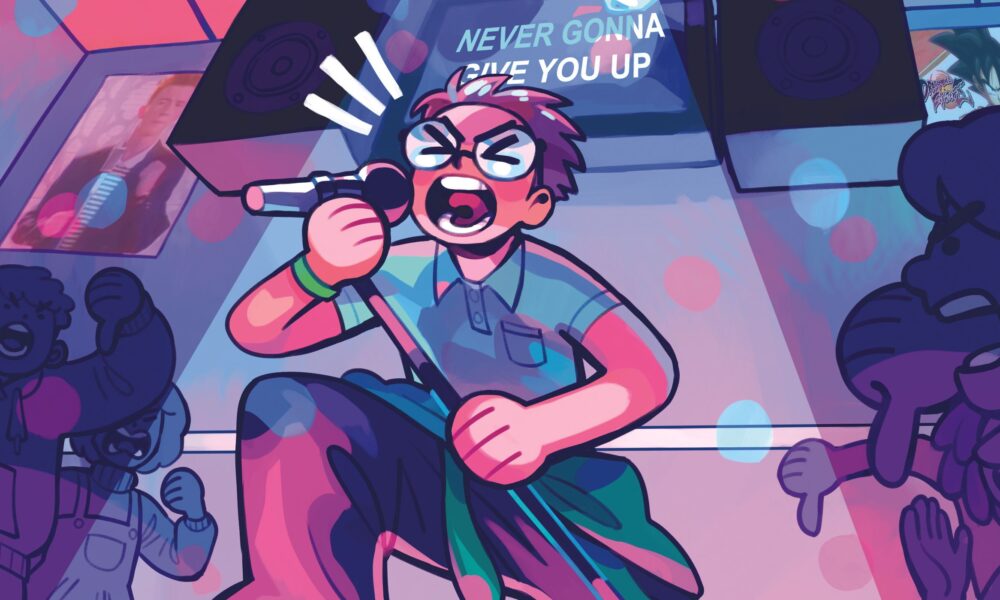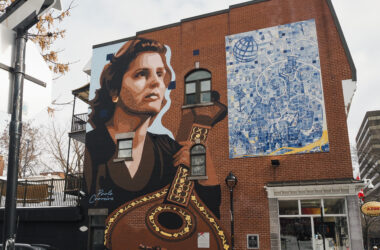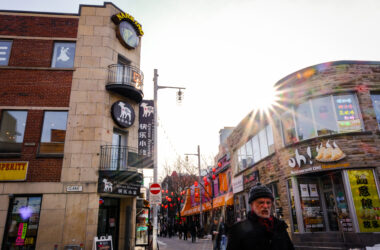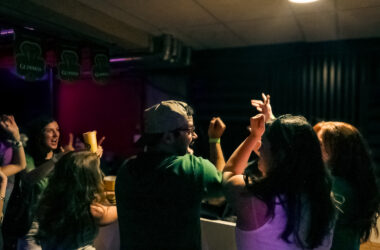Karaoke allows people to come together and shine on the stage regardless of their musical talents; it is a stage where shower singers and professional singers stand on equal footing. When dance floors and other nightlife venues in Montreal officially reopened on November 15, people could once again head to the karaoke stage to belt their favourite songs—and McGill students are itching to grab a mic once again.
Hana Mollin, U1 Management, enjoys karaoke because it gives her the opportunity to sing freely in front of an audience.
“It’s a very low-stress way of singing,” Mollin told The McGill Tribune. “I like to sing in the shower or when I’m driving. But I don’t tend to sing in front of people a lot, so karaoke is fun. I don’t mind singing in front of people [there] just because of the environment. It’s a place where everybody can come together and sing.”
For others looking forward to the return of karaoke, like Luciana Decormis, U2 Education, it’s all about the spotlight.
“I think my favourite thing about karaoke is I really like attention,” Decormis said. “So I like performing and it’s just so fun.”
Although karaoke allows individuals to indulge in the spotlight, it can be a community experience for many. Izabella Beller, U2 Arts, typically picks crowd-pleaser songs to allow others in the room to join in. Her favourite songs to sing include classics from Mamma Mia or heart-wrenching Taylor Swift ballads.
“If it’s just a song that I like that a lot of people don’t know, then it’s not fun cause I’m just by myself,” Beller said. “I want people to be as excited as I am for the songs.”
Everyone has a go-to karaoke song that they know they can rely on no matter what. It seems that many students use the open stage to feel empowered, as if they’re on top of the world. Mollin’s go-to karaoke song is Bodak Yellow by Cardi B.
“I feel like a badass when I sing it,” Mollin said. “It makes me feel powerful.”
Decormis draws a similar feeling from her go-to karaoke song.
“I really like Tusa [by Karol G],” Decormis said. “It’s one of the few reggaeton songs that empowers women and is not sexualizing [….] Girl power, you know?”
Not only does Decormis enjoy the rush of confidence she gets while performing Tusa, she also loves that it brings her back to fond memories.
“It reminds me of the time right before quarantine and of 12th grade and all my friends,” Decormis reminisced.
Music has always had the power to transport people elsewhere, but the energizing and judgement-free atmosphere of the karaoke room allows for a unique form of escapism.
In Quebec, karaoke bars unfortunately have been closed since September 2020, since they had been a source of COVID-19 case spikes. Financially, it was a tough year for many karaoke bar owners. Now that they’re reopening, the karaoke scene in Montreal looks forward to a resurgence.
Mollin is already making plans after being away from the karaoke scene for a while. Since pandemic restrictions kept many first-year students away from nightlife experiences last year, Mollin looks forward to embracing her adulthood through karaoke.
“I hope to go [to a karaoke bar] with my roommates.” Mollin said. “I used to go to karaoke bars with my family a lot. But it’ll be different this time because I feel more like an adult, and I’m doing it with my friends, and I can drink too. I feel like I’ve grown up.”
Decormis and Beller checked out a karaoke location last weekend, and are excited to return now that COVID-19 restrictions in the venues have eased.
“I’m definitely planning on going again. Especially now that you can dance,” Beller said.
Music has the magical power of bringing people together, and karaoke demonstrates that perfectly. The karaoke stage is a special one: All judgments melt away, and people can play a role for as long as their favourite song lasts.









